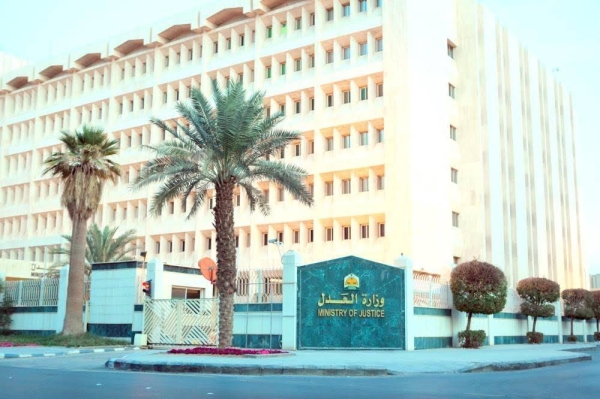
The Court of Appeal in the southern Asir region sentenced a Syrian doctor, who was convicted of sexually harassing a Filipino nurse, to five years in prison and defaming him through the media. The Court of Appeal issued the verdict after considering the lower court’s earlier ruling as insignificant.
In its verdict, the Criminal Court in the Asir region awarded the doctor with one-year jail term and fine of SR5000 after being convicted of harassing the nurse by touching her body with a sexual connotation. The court also ruled to publish the summary of the verdict in the local media at the expense of the convict after completion of the judicial process in the case. It also gave the parties the right to object to the ruling before the Court of Appeal.
Accordingly, the Syrian doctor approached the Court of Appeal, pleading to acquit him while the Public Prosecution objected the ruling and demanded to award him the maximum five-year imprisonment prescribed in the Anti-Harassment Law. After examining the case, the Court of Appeal came to the conclusion that the penalty imposed by the court of first instance is small in accordance with what was stated in Article Six of the Anti-Harassment Law. In this regard, the Court of Appeal sentenced the convicted doctor to five years in prison.
Okaz/Saudi Gazette has learnt from the well-informed sources that the Filipino nurse, who was working with the doctor in a private hospital in Asir, lodged a complaint to the hospital administration, saying that the doctor sexually harassed her. The nurse also lodged a petition to the police stating that she had been harassed by a doctor who touched and pressed on a sensitive part of her body during duty at their workplace. She pointed out that the doctor sent her text message from his phone apologizing for what he had done, justifying that he was joking with her, and the complainant attached a copy of the message.
During the investigation of the case, the Public Prosecution ordered the hospital authorities to suspend the doctor from service, considering that harassment crimes are major crimes that warranted arrest. Then it ordered the extension of his detention and decided to refer him to the criminal court. When the nurse waived the private right, the Public Prosecution decided to proceed with the case in the public right. After completing investigations with the doctor the Public Prosecutor submitted a public claim statement, in which he indicated that the doctor deliberately touched a sensitive part of her body, which caused the victim to burst into tears. She said in her lawsuit that it was not the first time the doctor had touched her, as he had previously harassed her verbally and offered her SR1000 for spending an evening with him at his house.
The nurse reported that she had neither witnesses nor CCTV footages at the scene of crime, but she kept apology messages from the doctor’s WhatsApp. She decided to waive her private right, considering that the doctor’s touching of her was an error.
The head of the nursing department appeared to testify before the Public Prosecution, stating that she received the nurse’s complaint and that she was found crying because of what happened to her from the part of the doctor. The Public Prosecution produced the WhatsApp messages exchanged between the doctor and the nurse. The conversation included the nurse’s question to the doctor: “Doctor, why did you touch private part of my body yesterday? I couldn’t sleep because of what you did.” The doctor answers: “I’m sorry, it was just a joke. Please come tomorrow. I asked about you and they told me that you were sick, and I tried to call you and you did not answer. I am sorry, I am ashamed, I respect you, and I swear I was joking. Did you tell anyone about that? Did you tell the hospital administration? Did you file a complaint against me?
Upon hearing the statements before the police officer, the doctor admitted that he had touched a sensitive part of the nurse’s body simply for joking, and sent her an apology via WhatsApp. During his interrogation, the doctor admitted that he had touched her hand and shoulder by mistake. The accused had admitted this to the hospital management after they threatened to refer the incident to the police. Then he came back again and retracted it, and admitted that he had touched a sensitive part of her body jokingly, without harassing her or bargaining with her for an evening with him for SR1000.
The Public Prosecution concluded the investigation with filing charges against the doctor for harassing the victim with a sexual connotation, by touching her body at the workplace. It considered that this is a forbidden act according to Shariah law and a punishable offense according to Article 1 of the Anti-Harassment Law. It produced 5 types of evidence, including digital evidence before the court. The doctor denied the charges before the court stating that the harassment allegation was incorrect. He pleaded that what he had committed was an unintentional mistake and there was no criminal intent represented by knowledge and will.
The Public Prosecution argued that the penalty for the crime of harassment, if the crime occurs in a place of work, study, shelter, or care, is imprisonment for a period of up to five years, or a fine of up to SR300000. The Public Prosecution said through its account: “The relevant authorities in the government sector and the private sector must put in place the necessary measures to prevent and combat harassment within the framework of the work environment, and everyone who is informed of a case of harassment has the right to inform the competent authorities to take whatever action they deem necessary.”












